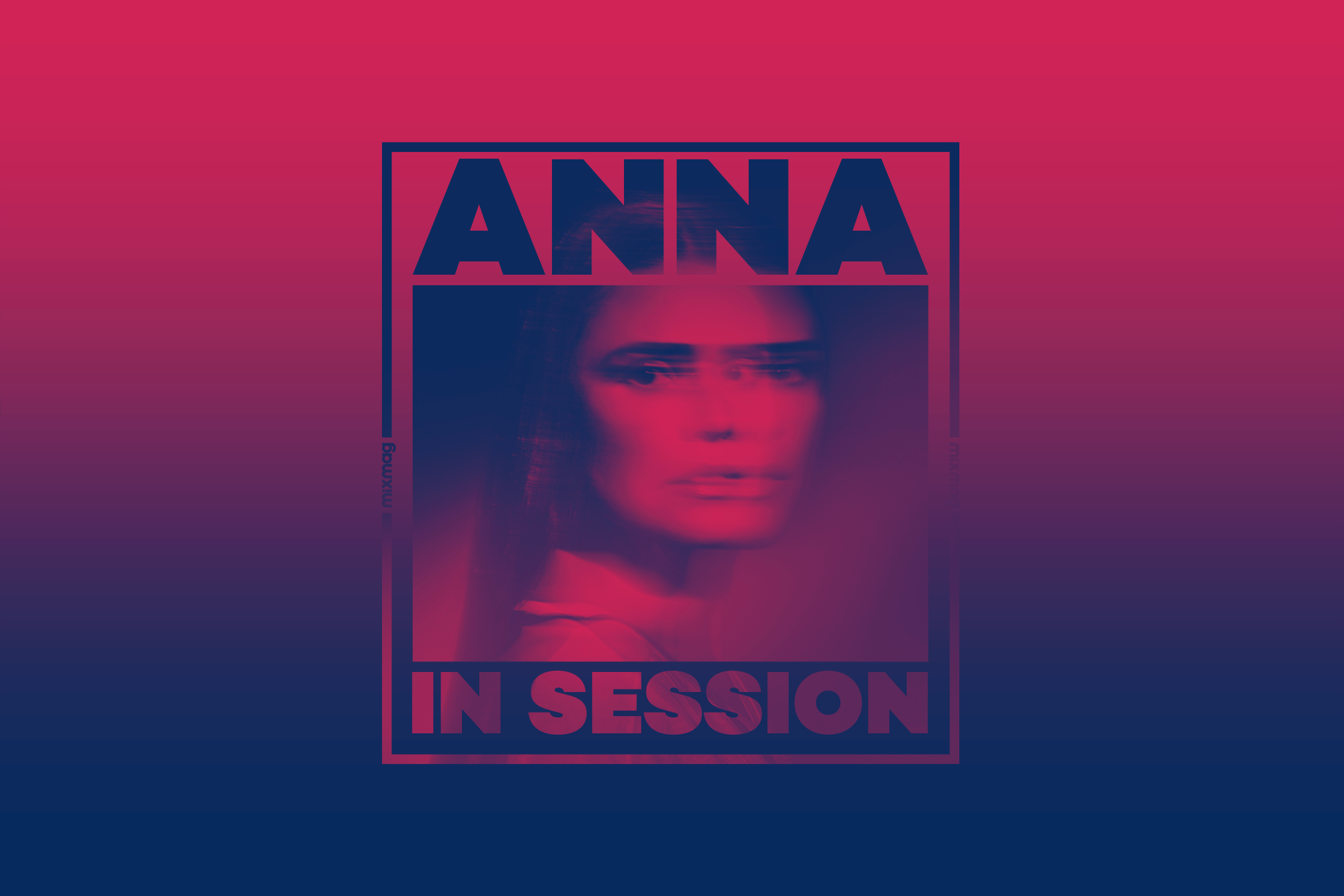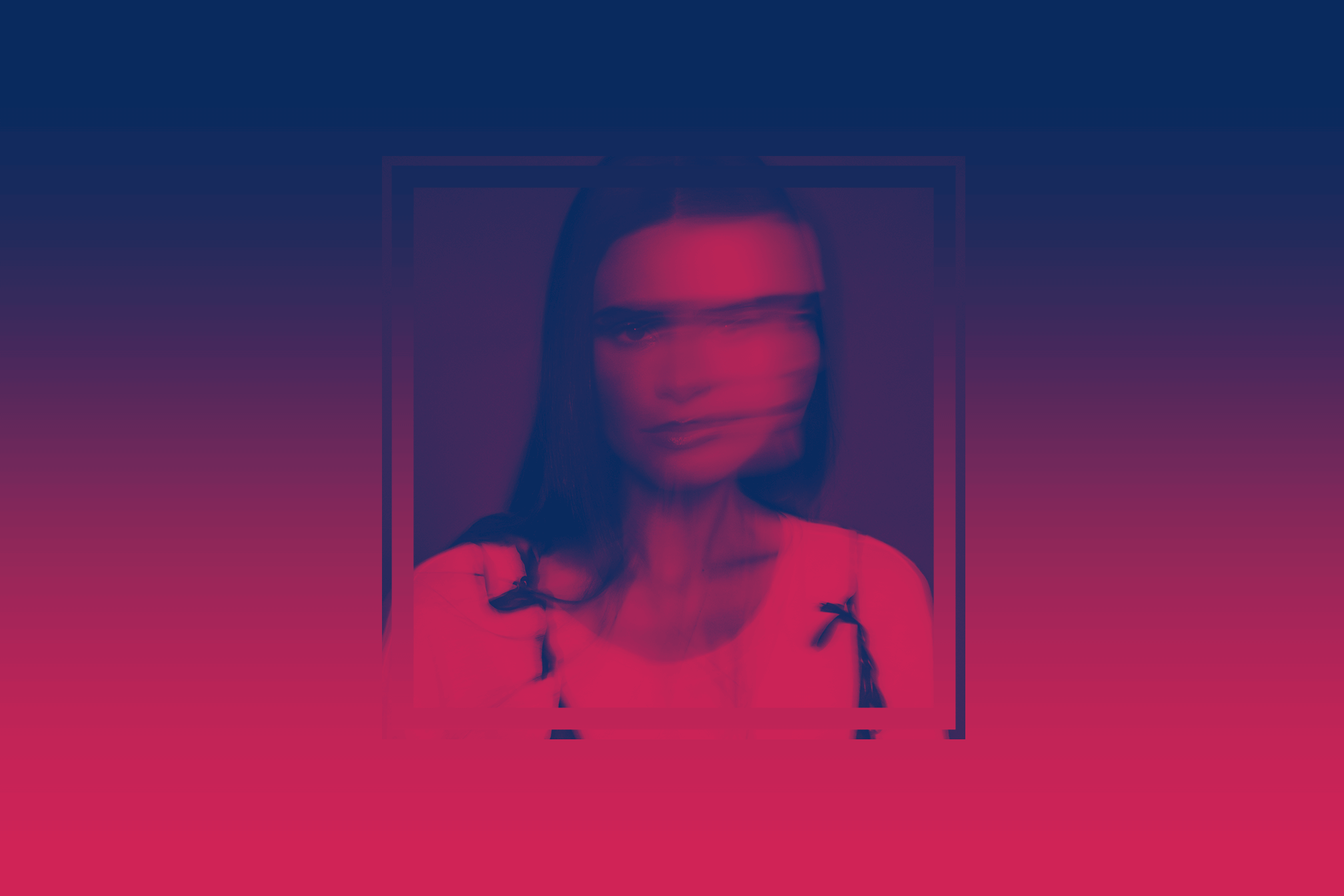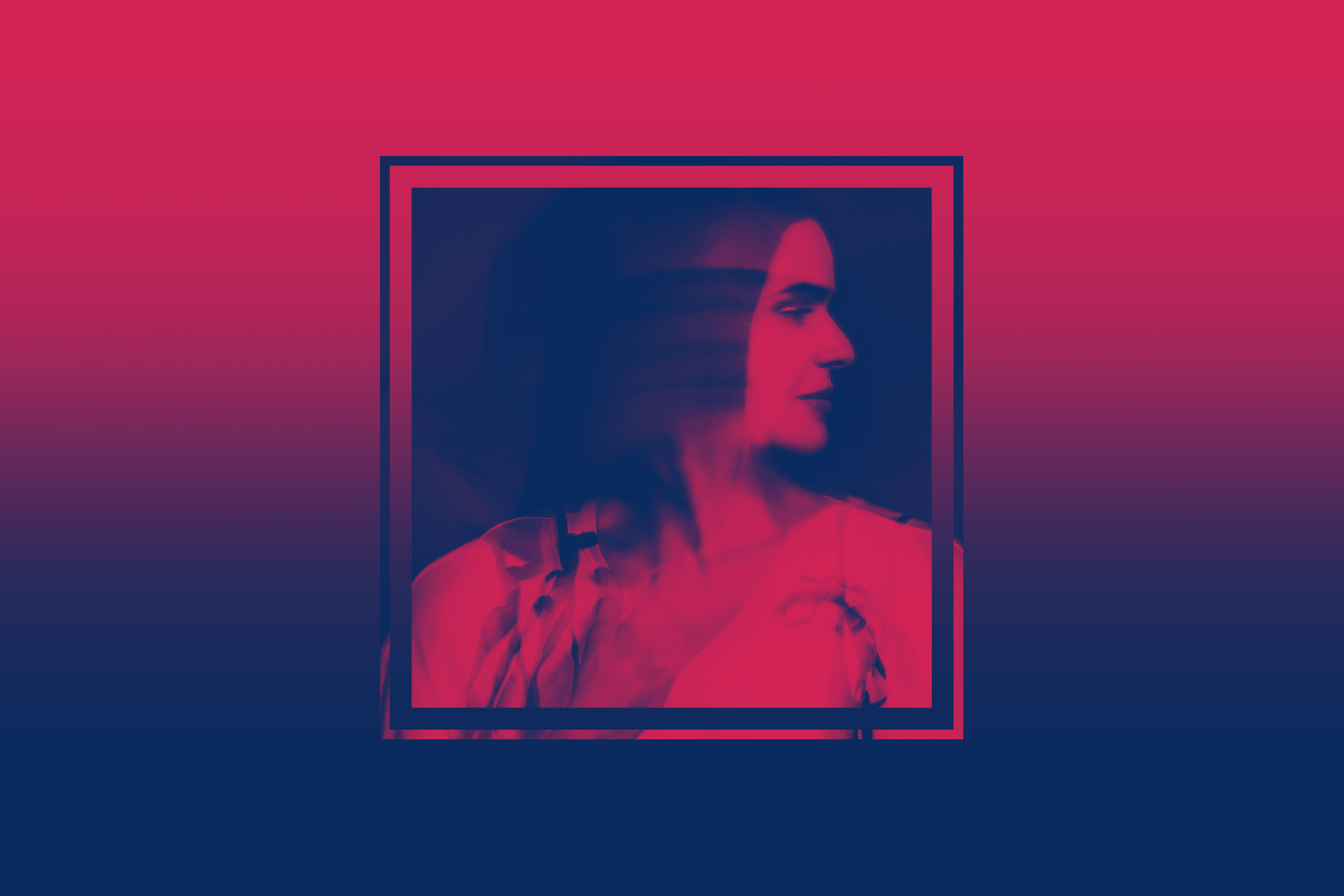 Music
Music
In Session: ANNA
From slam to sound healing: ANNA delves deep into the frequencies of the psyche and provides us with an original mix of techno tones
ANNA monumental rise as a global DJ phenomenon is well documented. Joining Carl Cox at Space Ibiza? she's done it. A peak time slot in the bag for Coachella? that too. Kicking off this year with the release of the EP ‘Journey to the Underworld’ and a set at London's hallowed Printworks, ANNA has one of her biggest years ahead of her.
ANNA, real name Ana Miranda, was born and raised in the town of Amparo in the State of São Paulo, where her love of underground music was born. Young ANNA had an early exposure to nightlife, with her father moonlighting as a DJ alongside owning a nightclub in her local town — she first cut her teeth on the decks when she was 14. Holding a real passion for techno, she absconded from further education to focus on her craft.
ANNA speaks to us only days after travelling from her home in Barcelona to São Paulo, despite a rush and a long haul flight she's excited to be back in her hometown: “I have Afterlife this week and it’s the first time the party is happening is here.” Having releases with many renown labels including Domino, Drumcode and Sapiens, ANNA is now working with Tale of Us’ Afterlife, with whom she has released ‘Journey to the Underworld’.
Read this next: 8 photos of Brazil's booming early-00s rave scene
Since the pandemic, Miranda has been on a personal journey not only developing her sound but also her mindset. Since her days partying in Ibiza, she's begun working on gaining self-realisation through 'sound healing'. “I am more creative, and I feel that the most important thing for me is that I can have this stillness.” Exploring ambient, ‘Journey to the Underworld’ travels the listener through three different states of consciousness. The track, ‘Dissolution’ has a laid-back, orchestral melody that is carefully enhanced with electronic echoes and spiritual frequencies.
As ANNA spent 2020 enjoying meditation and working on new music, she also teamed up with fellow Brazilian DJ and producer Wehbba to form Anaweh Studio. Creating masterclasses for others to learn more about producing has seen the studio blow up with over 1500 students. Recently, as a result of the Russian invasion of Ukraine, Anaweh have announced that throughout March, all sales from their masterclasses will be donated to the people in Ukraine, who are “desperately in need of help right now.”
We spoke to ANNA about the influences of energy healing has affected her and her music as well as the power of meditation.
Check out our Q&A with ANNA and listen to her In Session mix below.

I saw that you finally played Printworks for the first time – how was that?
Amazing. It’s such a nice venue and I love to play in the UK. In the UK people are always happy, and they just want to dance and have a good time and the venues are crazy. I love all the DJs that played. It was so special. I played after DJ Kobosil who goes much harder and faster, so I was thinking: “oh my god, what am I going to do? I don't play that hard and fast.” But I didn't feel that during the loss of energy. I thought the energy would drop but it was amazing as the people continued and surrendered to the sound which was super nice. Even the other room is a nice vibe. I loved it.
You speak about energy, your EP has come out which incorporates the different states of consciousness, could you explain this to me?
I’m getting into more ambient work, as I work a lot with energy healing and meditation but had never merged both worlds, I was just using them for my own personal journey. I started energy healing, breathwork practices and I’ve done lots of retreats — meditating for ten hours a day. So, I am into this world of energy expression of consciousness a lot. I started to merge both when the opportunity came up. So for Afterlife, I did one ambient track that is more introspective, little bit more chilled. I merged with my technical side so I could do this both in the same work. Now you're here with the ‘Journey to the Underworld’ which is techno, then ‘Surrender’ which is more melodic, then ‘Dissolution’ which is totally introspective. So, it goes from the chaos of the ‘Journey to the Underworld’ to the stillness of the ‘Dissolution’. I wanted to put all the states in the same EP and Afterlife allowed me to do it.
Read this next: ANNA: born and raised
Can you tell me some more about what sound healing can do to a listener?
There are different techniques that you can use in sound healing. You can target specific frequencies that are known to have healing properties, but it depends on which can work with chakras. You can work with instruments that have different modalities of sound healing, vibrations not just music. Those vibrations heal parts of your body. What I try to do with my music is to use the melodies, I use the frequencies, I've used some binaural beats in some intentional sounds, intentionally within my music. Even if they are very low in the music and people don't hear the frequency it is still there. I am learning, but I'm trying to apply these techniques to my music so my music can be more functional. You can use the music to focus, or you can use the music to get more inspiration.
How has sound healing helped you and your music?
All this research was for my own personal journey. I went through a transformation in 2017 that shocked me as it was very crazy. I started to use music differently, experimenting with instruments and with sound healing, but it was mainly for my personal journey, for my realisation, for my longing for expansion of consciousness. This was when I started to use music as a tool in my meditation, and I wanted to achieve a certain emotion. I just put one specific track or a specific instrument that I knew would help. So, I started to notice how the music can be like a prayer, how music can help you to achieve certain states to heal to raise your frequency.
How do you find meditation helps you create music?
What I've been noticed about meditation and all the work of self-inquiry, contemplation especially, is that my mind is calmer. Of course, I go through my moments of torment but what I see is that I can deal with them better. I feel that they come, and they go faster. I am more creative, now I can look at a tree and I have that fulfilment because our mind wants so much always looking for the next thing for the most success, more love from others. We don't see what is already in here because our mind is completely crazy. Meditation gave me this space as now I look at the sky and I'm completely fulfilled. Now when I choose something material or have success in my career, this is so much more intense, I don't need so much success anymore. I don't need so much money. I don't need anything because I'm already fulfilled with this, this love, and this recognition that we are living a miracle. You don't have to do much because sometimes we fantasise about meditation that we must go through crazy experiences and stop our thinking and go to another world, but it's none of this.

I’ve heard that your dad used to own a nightclub in Brazil, I’d love to learn more about that?
Since I can remember I’ve been in nightclubs. I was actually allowed to go to his nightclub when I was 14. My dad and my uncle always had a nightclub here in my town. My father tried to build a new one in Rio de Janeiro, but it didn't work very well. But mostly it was in my town, the Amparo in the countryside of São Paulo. So, they always had a club here, sometimes it would have changed name, changed place but always in Amparo. I remember when I was super tiny like nine or eight years old, I went to the club to help with New Year’s Eve, and I got to stay awake until midnight. I was always in this environment because my father was a DJ my mother helped in the club, so I was always there. I was going every week with my father to São Paulo to shop for records when I was 10 but I just wanted to leave because afterwards, we would go shopping. But I was there, you know in this environment. I became a DJ when I was 14 to 15. My father was complaining about the DJ because I said they were playing the same stuff in the same order every weekend, so my father said, “why don't you go and do it yourself?” Two weeks I already had my playlist, and I was playing seven hours a night. I really found a passion, I didn't want to go to college because I already knew what I wanted to do.
What music did you start your career playing?
In the very, very beginning when I was 14 to 16, I played Brazilian music. I'd learned how to use all the equipment in the club in just two weeks, but I didn’t mix the tracks. I was just making a transition but not mixing them. I discovered electronic music, then I ended up playing in another room that was called "the techno room." The club had six floors, my floor that was Brazilian music, jazz music floor and so it was a big club with different rooms. I was going to the bathroom one day when I went into the techno room. It was called techno room, but they would also play drum ‘n’ bass and house. I saw the DJ was playing and thought it was so amazing. I was completely in love with that, and I started to want to play electronic music in my room. I didn't know anything about electronic music as I didn't have any internet because I was from a small town in the countryside. Everything I knew came from the local DJs that came to the club and I would buy vinyl in the record shop when I was in São Paulo. But I started to research, I needed some time to learn the technique to play electronic music and mix. I started to research I was practising by playing eight hours a day and for my first 10-12 years I just played vinyl. So, I had the vinyl of everything — drum ‘n’ bass, house, progressive house, but techno, I liked everything.
When did you feel like you had finally made it as a DJ?
Oh my god, my manager and I made a joke the other day 'how do we know we have made it?' Maybe it’s being the cover of Mixmag or to play somewhere with the fee being high? But I think when I moved to Europe, I started to play with Carl Cox at Space and playing at some festivals. For some people, they have done so much but for them, they haven’t ‘made it’ as they hoped for some much more. But when I first played in Ibiza, I never imagined this would happen. When I started playing, my goal was to have money to pay for my rent in São Paulo so I never imagined I would move to Europe. It was not something that I had in mind because I didn't think it was possible. I moved in 2015 and then I started playing Ibiza and festivals and so I felt that in 2016 I had already made it, but then we raise the bar which is when I think that's when we start to be greedy and unhappy. I came from a city where there was no electronic music at all and now, I live in Barcelona playing alongside Carl Cox and Solomon. It doesn’t matter that I’m not a headliner or that I'm not the most important DJ at the party, but I have made it. I'm very happy. I’ve played everywhere that I wanted, and I can live off my work.
Read this next: Desande is the dance music movement taking over the Brazilian mainstream
How does it feel to go from the pandemic to a year of gigs at places such as Coachella?
I was going to do a lot of stuff before the pandemic, 2020 was going to be my biggest year. I was sad to see what was happening with the word but what I did was transformed myself with meditation and a path of self-realisation with spirituality. Because I trusted and I had a centre, I had the strength to lament and be desperate and could actually create something out of this and learn a lot. I think that in all situations you can learn something out of them. So, this year is looking very crazy for me, and I don’t like being very busy. I have many things to do and do many projects I’m working on, so I like to have time with myself doing nothing. I like to have a balance. But I am aware that I’m going to have the best year.
Can you tell us about your mix?
I wanted to do a techno mix of what I’m playing at the moment and some of my own work. I wanted to see if I could mix some ambient tracks, but it’s been a while since I put out a mix so I wanted people to hear my techno side.
Becky Buckle is Mixmag's Digital Intern, follow her on Twitter
Tracklist:
Raxon 'Input Robot'
Veerus 'Yard'
Stephan Bodzin 'Dune'
Bart Skils & Weska 'Shades of Summer'
Frank Biazzi 'Take Control'
Radio Slave 'Acid Dip'
Christian Smith 'Turn The Lights ' (Alessandro Grops Remix)
ANNA & Wehbba 'Unio Mystica'
Glaskin 'Stalactite Cave'
Planetary Assault Systems 'Say It Loud'
Uto Karem, Hollen 'Dance'
Anfisa Letyago 'Orizzonte' (Adiel Remix)
Pan Pot 'Particle Fever'
Kashpitzky 'Reckless'
Patrick Seich 'Acid Monday'
Stephan Bodzin 'Isaac' (Anna Remix)


